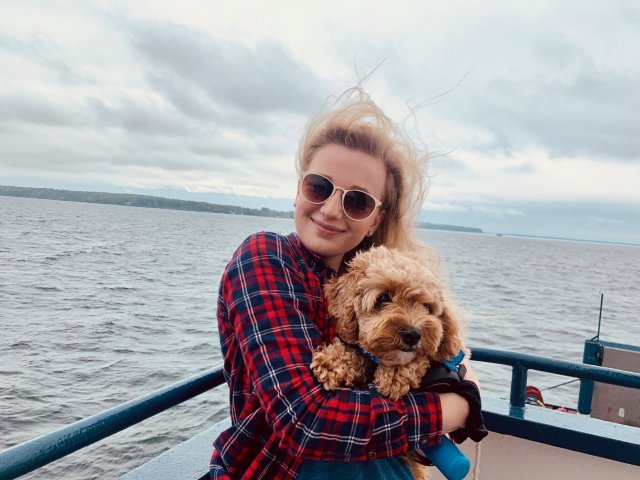Meet EPA Social Scientist Jules Witts

EPA social scientist Jules Witts assesses the human wellbeing benefits associated with restoration and revitalization.
Tell us about your background.
I graduated in 2020 with a BA in Sustainable Urban Studies with a background in geography, cultural studies, environmental sustainability, and sociology from the University of Minnesota.
When did you first know you wanted to be a scientist?
It would depend on who you would ask. I would say since grade school when I was constantly trying to learn more about how the world works. My parents would say since I was about 3 years old and wanted to know why the sky was blue, why ants could be so strong despite their small size, and how paper is made. I had my first microscope when I was 7 years old—talk about lucky!
What do you like most about your research?
I like that I get to continuously learn more and more about the world each day and hopefully make a difference in my community.
How does your science matter?
My research currently examines how your environment can impact your health and wellbeing, with the goal of increasing health and wellbeing benefits through restoration and revitalization. We want communities and stakeholders to be a part of the process and feel valued. I hope to make my research transparent and open for participation as environmental justice is a passion of mine.
If you weren’t a scientist, what would you be doing?
I think I would be a business owner, particularly with an interest in sustainable products or perhaps a dog-friendly coffee shop.
What advice would you give a student interested in a career in science?
I would tell anyone to get some hands-on experience. I think internships and volunteer activities can give you a realistic glimpse of what a career in science looks like. I would also highly recommend networking with teachers, professors, colleagues, friends, and mentors that can provide assistance because there is a huge learning curve to the job.
What’s your role in the Pickle Pond research project?
I oversee data management for the trail counters placed at Pickle Pond and I also help with trail cameras, aesthetics monitoring surveys, intercept surveys, documentation, and any other support that is needed.
What do you think the coolest scientific discovery was and why?
I think that DNA is one of the coolest discoveries because it has changed how we think about the function and structures of the human body and it has changed the future of crime. We can learn a lot more about both our past and our future from DNA.
If you could have dinner with any scientist, past or present, who would you choose and what would you talk about?
If I could have dinner with any scientist, it would be Nikola Tesla. I think it would be super interesting to learn about his creativity and what he would think about the world today.
You are stranded on a desert island; how do you use science to survive?
I would use science in a variety of ways whether it be what temperature to cook my food so that I don’t get food poisoning, protecting myself from the sun, how to build a shelter—the possibilities are endless!
What do you think is our biggest scientific challenge in the next 20/50/100 years?
I think our biggest scientific challenge will be tackling climate change and environmental justice.
Editor's Note: The opinions expressed herein are those of the researcher alone. EPA does not endorse the opinions or positions expressed.
